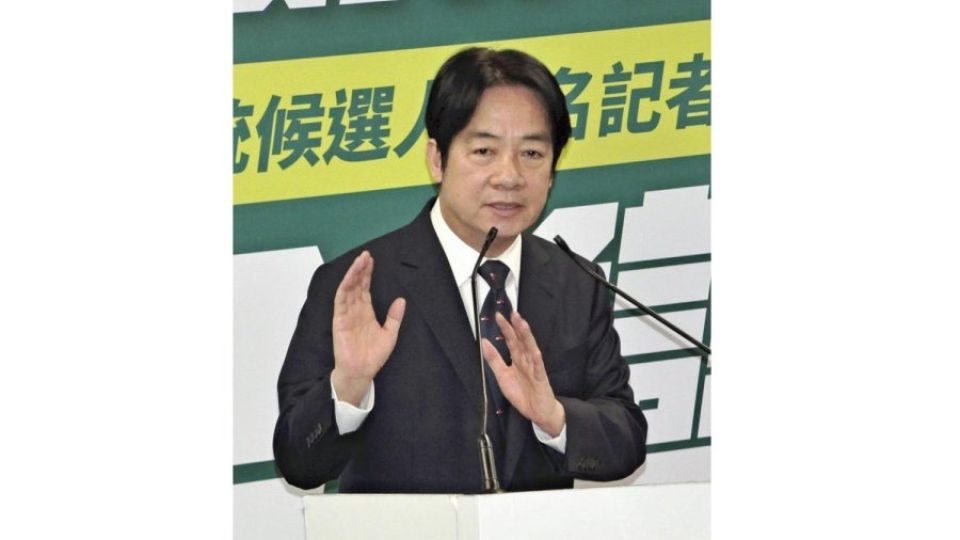April 14, 2023
TAIPEI — Taiwan’s Democratic Progressive Party on Wednesday chose Taiwan Vice President Lai Ching-te, 63, as the ruling party’s official candidate for the presidential election to be held in January next year. Lai, the DPP chair, is one of the leading candidates for the presidency.
In terms of policy toward China, which is likely to be a focus of the presidential election, Lai has indicated that he will continue the policies of Taiwan President Tsai Ing-wen and work with the United States to counter China.
“Taiwan is not an inalienable part of China’s territory. The presidential election will be a choice between democracy and totalitarianism,” Lai said at party headquarters in Taipei on Wednesday, making it clear that he will stand against China, which is committed to unifying Taiwan with mainland China.
Regarding an emergency involving a potential invasion of Taiwan by China, Lai said, “Taiwan will be directly affected, but China cannot avoid a major disaster, either.” He expressed his intention to cooperate with democracies that share the same ideals to enhance deterrence.
During his tenure as premier, Lai repeatedly made remarks that reflected his stance as “a politician who advocates Taiwan’s independence.” As the next presidential election draws near, he apparently intends to continue Tsai’s line of maintaining the status quo, adhering to a moderate assertion of neither independence nor unification, partly because concerns have grown at home and abroad that his earlier stance may increase friction between Taiwan and China.
Emphasizing the importance of relations with Japan, Lai has expressed a desire to promote bilateral cooperation in areas such as the economy and defense. When former Prime Minister Shinzo Abe died in July last year, Lai visited Japan and attended a funeral that Abe’s close relatives also attended.
Lai lost his father, a miner, at an early age. He studied hard and became a physician. He emphasizes his strength in the face of adversity, saying, “Poverty was the greatest asset my father left me.”
Since entering politics, Lai has climbed through the ranks. He has served as a legislator, mayor of Tainan and Taiwan’s vice president. Lai was tipped as a promising a candidate for the presidency from early on.
In the previous presidential election, he lost to Tsai in the party presidential primary. With a presidential term limit of two four-year terms, Tsai cannot run in the next election, and will instead endorse Lai as her successor.
Meanwhile, the largest opposition party, the Kuomintang, is also gaining support in the presidential election.
The KMT has not chosen its official candidate for the presidency yet, but New Taipei City Mayor Hou Yu-ih is considered the favorite. Terry Gou, a former chairman of Hon Hai Precision Industry Co., is also seeking to run with the party.
Ko Wen-je, a former Taipei mayor and the head of the Taiwan People’s Party, the third largest in Taiwan, also is expected to run in the election.
Former Taiwan President Ma Ying-jeou, a senior KMT member who espouses a policy of easing tensions with China by promoting exchanges with Beijing, visited China from late March to early April.

